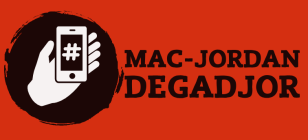Ghana’s recent ranking of 8th in Africa for internet quality, as per the 2024 Surfshark Digital Quality of Life Index (DQL).
Internet quality has become a critical determinant of economic growth and societal development in today’s rapidly evolving digital world.
Ghana’s recent ranking of 8th in Africa for internet quality, as per the 2024 Surfshark Digital Quality of Life Index (DQL), underscores its progress in this domain. With an index score of 0.304, Ghana reflects commendable performance in internet speed, stability, and overall digital connectivity.
The DQL Index evaluates countries based on five core pillars: internet affordability, quality, e-infrastructure, e-security, and e-government. These pillars are further analyzed through 14 indicators to gauge each country’s overall digital well-being.
Ghana’s score of 0.304 signifies a balanced performance across these metrics, indicating a robust digital infrastructure and reliable internet services.
Comparison with Top-Ranked Countries
Factors Behind Ghana’s Performance
-
Internet Speed and Stability: As of 2024, Ghana’s average internet download speed was 16.59 Mbps. While this is lower than some top-ranked countries like South Africa, which boasts an average mobile download speed of 34.5 Mbps, Ghana’s internet infrastructure has shown significant improvement and reliability. -
Digital Infrastructure: Ghana’s telecommunications industry is more developed compared to many of its regional peers. The country has a competitive telecom market with multiple service providers, which helps in maintaining a robust digital infrastructure. -
Internet Usage and Penetration: Ghana has a high internet penetration rate, with over 24 million users as of early 2024, translating to a penetration rate of 69.8% of the population. This widespread usage indicates a strong demand and reliance on digital services, which in turn drives improvements in internet quality.
Implications for Future Digital Development
-
High Data Costs: The cost of internet access in Ghana is a significant barrier. Data charges are notoriously high, with the price for 1GB of mobile data ranking among the steepest in the region. This financial burden disproportionately affects low-income households, limiting their ability to participate in the digital economy. -
Infrastructure Investment: Achieving universal, affordable, and high-quality internet access by 2030 will require substantial investment. The World Bank estimates that this will require an investment of $100 billion. Without this investment, the dream of a connected Ghana remains just that—a dream. -
Rural-Urban Divide: While urban areas enjoy robust internet access, rural communities often struggle with connectivity issues and speeds below urban benchmarks. This disparity not only affects daily communication but also hinders educational and economic opportunities for those in less populated regions.
Impact on Businesses, Education, and Everyday Life
- Businesses: Enhanced digital connectivity facilitates e-commerce, enabling businesses to reach a broader customer base and operate more efficiently. It also supports digital entrepreneurship and innovation, fostering economic growth.
- Education: Reliable internet access is crucial for online learning and educational opportunities, particularly in rural areas where traditional educational resources may be limited.
- Everyday Life: Improved internet quality enhances communication, access to information, and participation in the global digital economy for all citizens.
Conclusion
This ranking reflects improvements in internet speed, stability, and overall connectivity, which are crucial for efficient communication, work, and entertainment online.
The ranking underscores Ghana’s potential to further develop its tech ecosystem. With a growing number of mobile connections and increasing internet penetration, the country is well-positioned to support digital entrepreneurship and innovation. However, challenges such as high data costs and inconsistent network coverage remain barriers to achieving universal, affordable, and high-quality internet access.
Efforts to bridge the digital divide are essential. Initiatives aimed at expanding internet access in rural areas and improving infrastructure are gaining traction. The government and private sector are collaborating to enhance connectivity, which is crucial for ensuring that all Ghanaians can participate in the digital economy.
The high cost of internet data continues to be a significant burden for consumers, particularly low-income households. Reducing these costs is essential for broader participation in the digital economy and for fostering economic growth and innovation.
In summary, Ghana’s 8th place ranking in Africa for internet quality is a positive indicator of its digital progress. However, addressing the remaining challenges and continuing to invest in infrastructure and affordability will be key to fully realizing the potential of Ghana’s tech ecosystem in 2025 and beyond.











